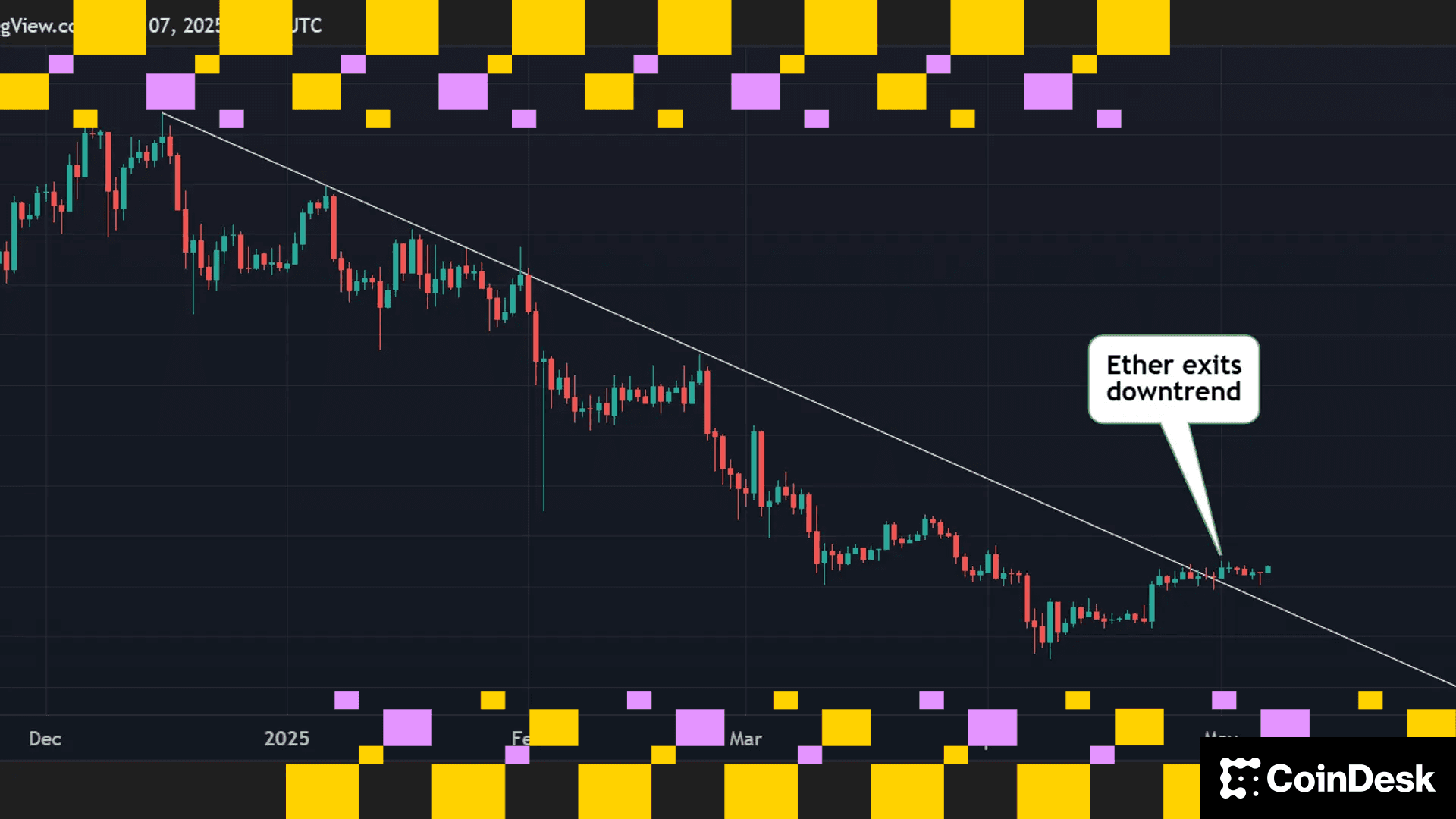MicroStrategy Takes $147M Impairment Charge on Bitcoin Holdings in Q4
The software firm recently told the SEC it would revise its disclosures related to adjustments for impairments on its digital assets.

MicroStrategy (MSTR) reported a non-cash digital asset impairment charge of $146.6 million in the fourth quarter, up from $65.2 million in the prior quarter, according to its latest earnings statement.
- The impairment reflects the decline in the price of bitcoin versus the price at which the bitcoin was acquired. Under standard accounting rules, the value of digital assets such as cryptocurrencies must be recorded at their cost and then only adjusted if their value is impaired, or goes down. But if the price rises, that does not get reflected until an asset is sold.
- For 2021, MicroStrategy posted total digital asset impairment losses of $831 million, versus $71 million in 2020.
- The company's 124,391 bitcoins held at the end of Dec. 31, 2021, were acquired for $3.752 billion, reflecting an average cost per bitcoin of approximately $30,159, the company reported.
- MicroStrategy reported on Tuesday morning that it bought approximately 660 additional bitcoins for around $25 million between Dec. 30, 2021, and Jan. 31, 2022. This gives the company a total of 125,051 bitcoins, valued at about $4.8 billion at the current bitcoin price of $38,700.
- The SEC recently objected to MicroStrategy’s accounting adjustment for its bitcoin holdings. The company later told the commission that it would “revise its disclosures of non-GAAP measures in future filings to remove the adjustment for impairment losses and gains on sale related to bitcoin, as requested by the Commission.”
- On its earnings call Tuesday, MicroStrategy's CFO Phong Le said the company expects an additional significant impairment charge during the first quarter of 2022 given bitcoin's volatility. Le added that MicroStrategy is working with other companies and various agencies to "determine a more appropriate accounting framework for digital assets."
- Le says MicroStrategy's balance sheet can weather any headwinds as no debt is coming due until December 2025.
- Shares of MicroStrategy were down about 1% in after-hours trading. Shares have fallen around 33% over the last month.
UPDATE (Feb. 1, 2022, 22:59): Adds bullet points on impairment losses and comments from earnings call.
More For You
Exchange Review - March 2025

CoinDesk Data's monthly Exchange Review captures the key developments within the cryptocurrency exchange market. The report includes analyses that relate to exchange volumes, crypto derivatives trading, market segmentation by fees, fiat trading, and more.
What to know:
Trading activity softened in March as market uncertainty grew amid escalating tariff tensions between the U.S. and global trading partners. Centralized exchanges recorded their lowest combined trading volume since October, declining 6.24% to $6.79tn. This marked the third consecutive monthly decline across both market segments, with spot trading volume falling 14.1% to $1.98tn and derivatives trading slipping 2.56% to $4.81tn.
- Trading Volumes Decline for Third Consecutive Month: Combined spot and derivatives trading volume on centralized exchanges fell by 6.24% to $6.79tn in March 2025, reaching the lowest level since October. Both spot and derivatives markets recorded their third consecutive monthly decline, falling 14.1% and 2.56% to $1.98tn and $4.81tn respectively.
- Institutional Crypto Trading Volume on CME Falls 23.5%: In March, total derivatives trading volume on the CME exchange fell by 23.5% to $175bn, the lowest monthly volume since October 2024. CME's market share among derivatives exchanges dropped from 4.63% to 3.64%, suggesting declining institutional interest amid current macroeconomic conditions.
- Bybit Spot Market Share Slides in March: Spot trading volume on Bybit fell by 52.1% to $81.1bn in March, coinciding with decreased trading activity following the hack of the exchange's cold wallets in February. Bybit's spot market share dropped from 7.35% to 4.10%, its lowest since July 2023.
Meer voor jou












